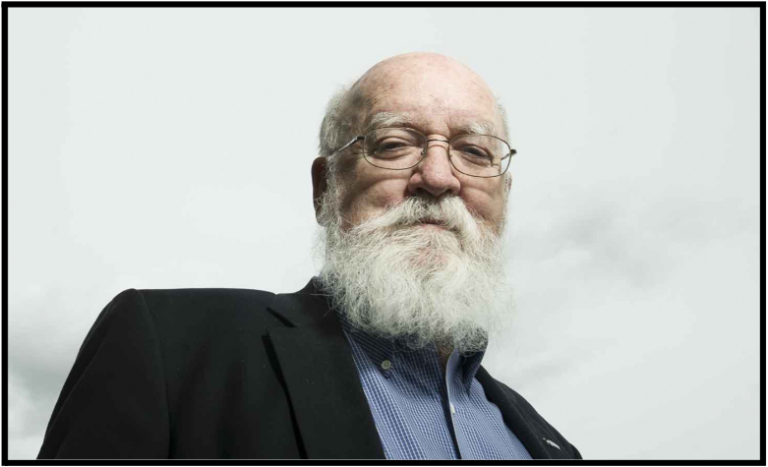Talking Big Ideas.
“The real secret sauce here is building a habit of curiosity.”
~ The Coaching Habit
Julian and I were recent college graduates working together at a small non-profit.
One day the boss told him to pack up and ship an expensive art piece we had at the office.
The directions were vague but Julian wasn’t comfortable asking for clarification. The staff rarely spoke up because the senior managers would often mock or yell at us. Julian silently did the best he could.
Later that day everyone heard the boss screaming: “Julian, what the hell did you do! You never take any initiative, and when you do you just f*!k everything up!”
A few years later, I was an entry-level staffer at the Institute for Justice. A senior attorney named Jeff pulled me and several others together into a conference room. He said: “We’re going to file a new federal lawsuit. And I’d like everyone here to play a vital role with it.”
Jeff picked our brains: “What can we do differently when we launch this case? How can we make it bigger than anything we’ve done before?” Even though some of us were new and lacked fancy degrees, Jeff asked us thoughtful questions and listened intently to what we said.
One of the youngest people in the room suggested we make a video explaining the lawsuit and post it to a new platform called YouTube. Jeff liked the idea and we made it happen. It was a big success. Case launch videos became standard for new lawsuits shortly afterwards.
Let’s call the first story an example of an Eggshell Culture. And the second story an example of an Empowered Culture.
Eggshell cultures are breeding grounds for disaster.
The BP oil spill, the NASA Challenger and Columbia space shuttle explosions, numerous airplane crashes, chemical industry accidents, and operating room tragedies all share a common thread, according to MIT Professor Edgar Schein. Lower-ranked employees were ignored or overridden by senior management. In many cases, employees knew tragedy was likely but stayed silent rather than speak up and face the wrath of giving bad news to their bosses.
When subordinates feel like they have to walk on eggshells – being overly careful or quiet else they offend or upset the bosses – poor communication, miscalculations, and accidents are inevitable.
By contrast, empowered cultures are breeding grounds for success.
Toyota revolutionized the car industry by implementing the Japanese philosophy kaizen, which means change for better or continuous improvement. Every employee from the CEO to the assembly line workers is empowered to speak up and share ideas on how to make things better. Problems are sought out rather than buried. Innovative ideas are encouraged and implemented.
Research shows that managers often think they have an empowered culture while subordinates at the same organization think they have an eggshell culture. This is caricatured brilliantly in the movie Office Space.

In one iconic scene the main character, Peter, is questioned in quick succession by two bosses about a mundane bureaucratic procedure. While the bosses think that merely asking questions to staff displays their interest, neither boss actually listens. Peter is dejected rather than elevated.
How can leaders truly create an empowered culture?
By being curious.
The essence of empowering people “derives from an attitude of interest and curiosity.” We feel empowered when higher status people give us their full attention without judgment. When they are truly interested in us and seek to understand our perspective.
While we balk at unsolicited advice, we yearn to share our wisdom and talents. Curious leaders understand this. They realize the truth in Ralph Waldo Emerson’s quip that every person you meet is your superior in some way.
Curious leaders make even low-level staff feel high status. Will Storr explains in The Status Game:
When people defer to us, offer respect, admiration or praise, or allow us to influence them in some way, that’s status. It feels good. . . . it doesn’t require a stupendous achievement . . . we can feel the velvet touch of status repeatedly throughout the course of a single conversation.
This is precisely how Jeff made us feel at the Institute for Justice.
Elevated status among staff transforms culture. Relationships deepen, projects succeed, and more and better ideas arise and combine in unpredictable ways.
Curious Leaders → Empowered Culture → Success
Good leaders ask more than they tell. They create a culture where people feel safe and excited to speak up. They are genuinely curious about the lives and ideas of the people around them. As Michael Bungay Stanier concludes in his classic book The Coaching Habit:
The change of behavior that’s going to serve you most powerfully is simply this: a little less advice, a little more curiosity.
![]() IDEA
IDEA
Ask more, tell less.
Today’s challenge comes from MIT Professor Edgar Schein:
Think about a conversation in which you were the subordinate or had a lower status than the other person and felt respected and acknowledged. Can you identify what the other person did to make you feel that way?
How can you treat someone this week in a similar way?
***
For more like this:
If you find this useful, please subscribe to our free weekly newsletter.





